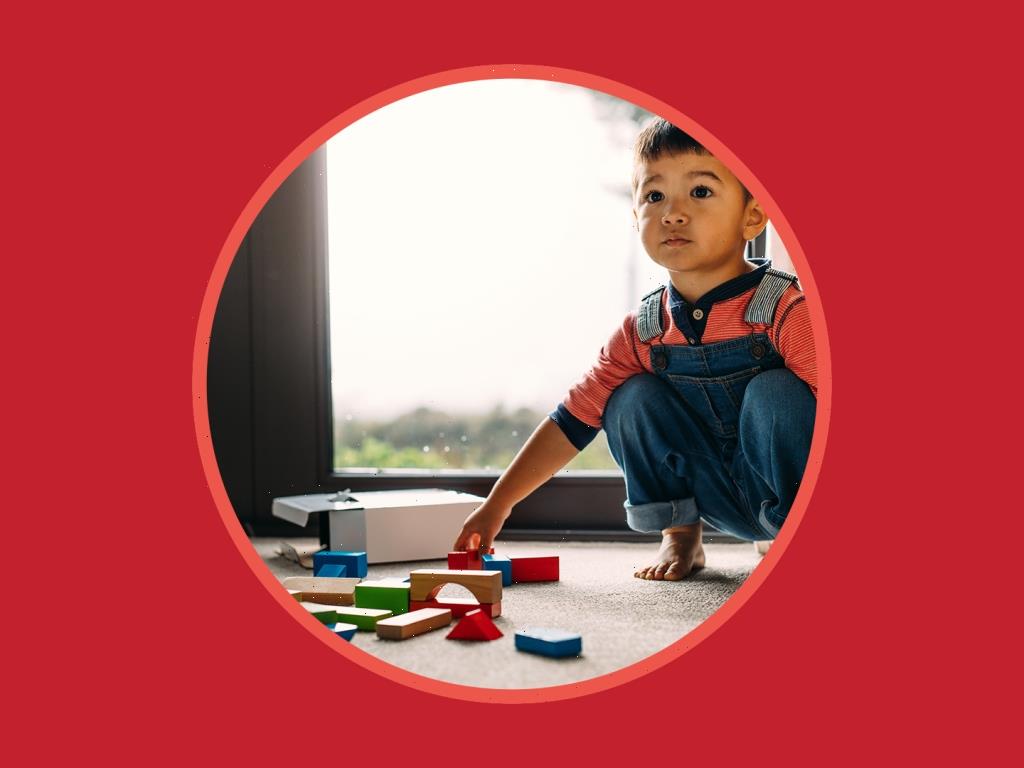Some kids are born independent— they let go of our hands when they’re barely two years old, they don’t say goodbye at school drop-off, and they are perfectly content drawing or reading without an adult. Others have a more difficult time separating from their parents, even when all they’re asking is for thirty minutes of uninterrupted time to cook dinner.
But experts say that independent play is a learned skill — one that takes time and the help of a patient parent to acquire.
“Some kids play independently with great concentration and attention very naturally,” says Dr. Laurie Hollman, a psychoanalyst and the author of Unlocking Parental Intelligence. “They enjoy it and are productive and creative. Other kids generally want a playmate or a parent to play with them. They enjoy the social engagement even more than the task, but if they do this all the time, they are missing out on learning a very important developmental skill: enjoying alone time, essential to being able to build skills and imagination on one’s own.”
Alone time is so important, Hollman says, that it can even help children become better learners when they get older, as they’ll become used to the idea that certain tasks, like homework and reading are solo endeavors. Creating without any outside influence can also help boost a child’s self-esteem and sense of accomplishment.
If you’re having trouble teaching your child how to enjoy being alone and to play without a companion, Hollman offers the following six tips.
fizkes/AdobeStock
fizkes/AdobeStock
1. Set them up for success
A 4-year-old is likely to be overwhelmed by choices if you simply say, “Go play by yourself.” A more effective trick is to give the child a specific task, provide necessary materials, and then leave him or her alone —while checking in once in a while. “Set up some craft materials that are easy to manage and invite your child to invent a surprise of their very own,” Hollman says. “Compliment them in detail on their progress. When they are done, put the project in a prominent place for all to see.”
2. Don’t banish them to another room
Kids who aren’t naturally independent may not like spend lots of time away from their parents. So try not to make independent play feel isolated or like a punishment, instead moving their play into your space. “Give your child some play things in a room where you are working on something else, like in the kitchen,” Hollman says. “Go about your business and point out you both have jobs to do. Most kids like to identify with their parents and do their task on their own as they see their mother do. Perhaps you are making dinner and they are playing with Play-Doh.”
3. Challenge them to be creative
Most kids need a little boost to help them get in touch with their creative sides. Suggest something out-of-the-box — and then move out of the way. “Provide play figures that are very enjoyable to your child and ask them to make up a story,” Hollman says. “Tell them you’ll be back in 10 minutes to hear all about it. Increase the time you are away by five minutes the next time and before you know it, they are playing alone and having a grand, inventive time. Then you can sit together and the child can dictate the story and you can write it down. A job well done!”
4. Start slow and praise often
The ability to play alone may take some time and encouragement so don’t forget to praise their independence — and be specific. “If your child is reluctant to try these activities for more than a few minutes at a time, that’s fine,” Hollman says. “Begin with those few minutes. Build on what they are comfortable with. Depending on their age, you can expect more time spent alone each time. Remember to praise them with details about what they’ve accomplished, no matter how small. General praise like, ‘Good job’ may be easily forgotten, but ‘You sure stacked the blue and red blocks up high’ is the kind of detail that’s more easily remembered.”
5. Be an independent role model
Children learn the most from observing our behavior. As it turns out, one of the best things you can do as a parent is drop everything, kick your feet up on the couch and show them how much you love a good book (and get yourself a latte while you’re at it). “As your child learns to read, model reading on your own for them to see how an adult enjoys reading for pleasure,” Hollman says. “They will want to copy your pastimes.”
6. Find teachable moments everywhere — even through television
Unless you’re super strict about screen time, there’s a good chance your little one will be more than happy to be alone if, and only if, a TV or computer is involved. Believe it or not, you can use their love of tech as a teaching tool. “When your child likes to use screen time as a way of being alone, make sure to discuss with them afterwards what they watched,” Hollman says. “Then they can feel proud of spending time on their own learning from YouTube or a brief documentary that they can later make conversation about. Children love to know they can teach you something.”
A version of this article was originally published in April 2016.
Source: Read Full Article


